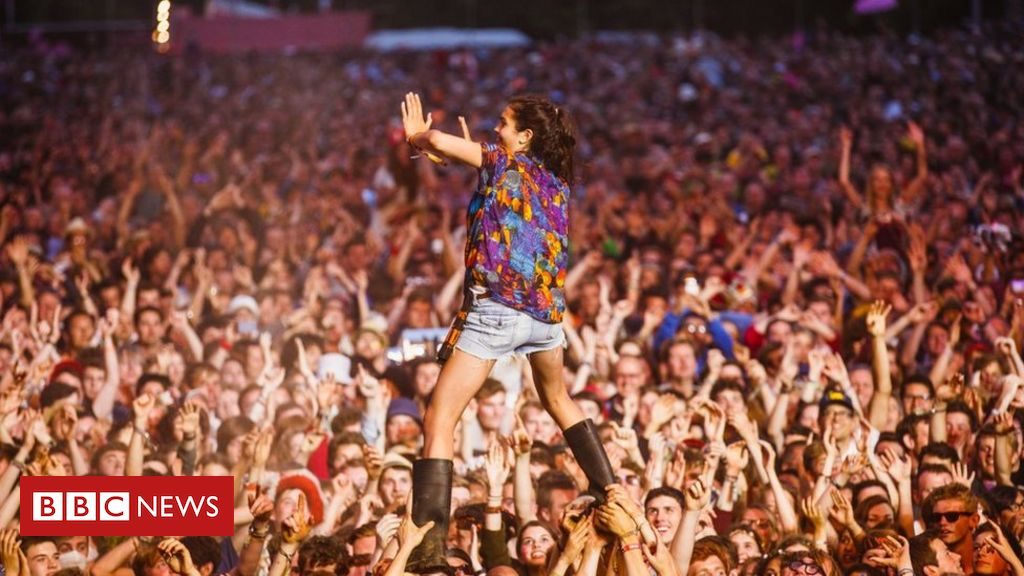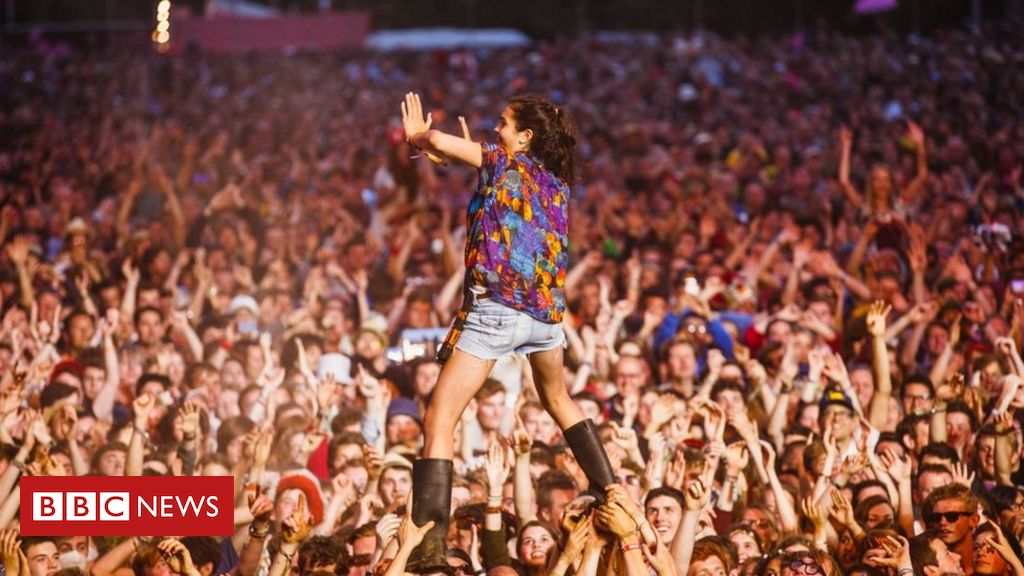Latitude: Why a cancelled music festival leaves a ‘big void’ – BBC News
- Latitude: Why a cancelled music festival leaves a ‘big void’ BBC News
- Lewis Capaldi, Bastille and Snow Patrol to headline Latitude Festival 2021 NME
- Latitude announces line-up for next year’s festival The Irish News
- Norwich family recreate Latitude festival in their back garden Eastern Daily Press
- Latitude Festival: Snow Patrol, Lewis Capaldi and Bastille first main acts announced BBC News
- View Full Coverage on Google News


Music festivals were among the first things to be cancelled as coronavirus spread, leaving fans disappointed and performers with nowhere to play. But what does it mean for the places where they were due to take place?
The businesses: ‘It’s a major event’
A quiet corner of Suffolk should have been reverberating to the sound of Haim, Liam Gallagher and The Chemical Brothers this weekend.
The Latitude Festival has grown to become a key date on the calendar of music fans since it started in 2006.
For Rebecca Bishop, director of the Two Magpies Bakery, it is typically a “crazy” weekend.
“It starts earlier in the week when the crews start arriving and then, by Wednesday and Thursday, we have a massive line of traffic outside the bakery,” Ms Bishop said.
“It’s all systems go, we’re making hundreds and hundreds of croissants.”
General manager Yasmin Wyatt said staff have to plan their journey into work on the Latitude weekend to avoid being delayed.
Last year, she made an error and “completely forgot the build-up to the festival”.
“I got stuck in the A12 festival traffic and genuinely a half-hour trip to get to work ended up taking two hours and 45 minutes,” she said.
This year, there are no such problems. The festival was cancelled weeks ago.
Another popular haunt for festival staff before and after the event would normally be The White Hart, the nearby pub and bed and breakfast in Blythburgh.
Landlord Lee Knight said for them “it starts about a month before”.
“We get the production crew coming in and then you get more of them and all the organisers,” he said.
“For the five days [Latitude] is on we’re really quiet. Then two weeks after we get another 40 people come in to pack down. So before and after it’s very busy for us.”
Mr Knight, 42, said that while locals were “sad” the event had been cancelled, the impact on businesses is “not about that weekend, it’s the whole three months” of lockdown.
About 14 miles (22km) from the site is Lowestoft-based Atlas Taxis, which has been running for about 30 years.
Sue Harvey said the cancellation left a “big void” in what would normally be the start of the summer season for the firm.
You might also like:
Over the years, it has benefited as Latitude has grown to attract 40,000 people, including festival staff and guests.
“It’s a major event for all the taxi firms, not just ourselves. We usually transport some of the performers, some of the crews that set up and the impact is for many weeks beforehand, right up until it finishes on the Monday,” she said.
Normally, the company’s entire fleet of 25 vehicles would be out each day of the Latitude weekend – compared to about 15 on a usual weekend evening – taking people between Lowestoft and Henham Park.
The performers: ‘How do we actually move on?’
Festivals also provide opportunities for fresh musical talent to get noticed and get their name out there.
Last year, Rubber Jaw, who hail from down the A12 in Colchester, played at Latitude for the first time through BBC Music Introducing in Suffolk.
The band’s frontman Michael Hemmings said he was “really gutted” for those on their way up not to be able to showcase their talents at the festival in 2020.
He said: “I’m sure they’ll have the same opportunity next year, but in the music industry everything’s about momentum, everything’s about hype.
“Just as you think ‘oh, I’m going to get to this point where things are really going to kick off’ – it must be a major setback.”
Hemmings said the “biggest fear” for the music industry was the virus’s long-term effect.
“The short-term effects we know. The industry is basically ground to a halt, labels don’t really want to sign bands at the moment.
“But the real worry is that this virus isn’t going to go away any time soon and it’s how do we come back from that?
“Things like Latitude may have to change, I have no idea how they would change – you’ve got so many people in such a confined area.
“For bands and the industry as a whole how do we actually move on from this? How can we make it safe and how can we make it continue to happen?”
The landowner: ‘Where are the other 40,000 people?’
The festival has been hosted in the 4,200-acre Henham Park since its inception in 2006, land that has been in the Rous family for the past 500 years.
Current owner Hektor Rous said he would usually be preparing to go down to the site and open up the gates for the first day, but instead was “enjoying the sunshine and out with the kids” at the bakery.
He said while it was “really sad” the festival was not taking place, “people have bigger problems going on than this”.
“Of course, on Saturday I’ll be sitting on the bridge with a beer thinking ‘where are the other 40,000 people?’, but it’s not the end of the world. We’ll be back bigger and better next year.”
Mr Rous said he felt for the B&Bs, holiday lets and restaurants in the area.
“People come here for the festival and they say ‘you know what I might come back here in August for a holiday’, it helps people discover Suffolk and that’s always been fantastic,” he said.
But he added that businesses would “bounce back”.
“Suffolk people are strong, able and clever and we’ll all be good next year.
“The whole planet is probably looking forward to some kind of good party and definitely Suffolk is, and this is the place to have it. “
Find BBC News: East of England on Facebook, Instagram and Twitter. If you have a story suggestion email eastofenglandnews@bbc.co.uk